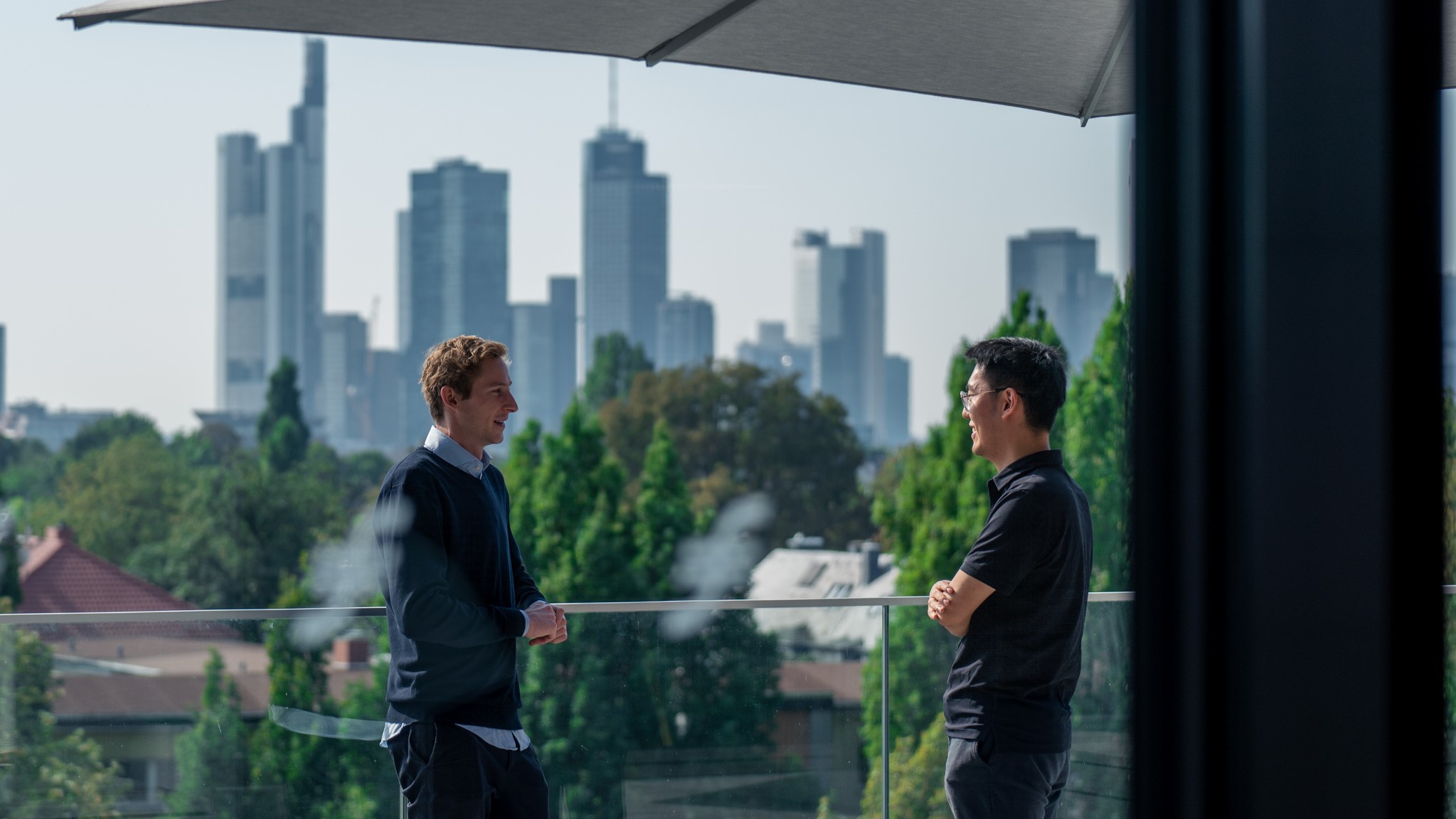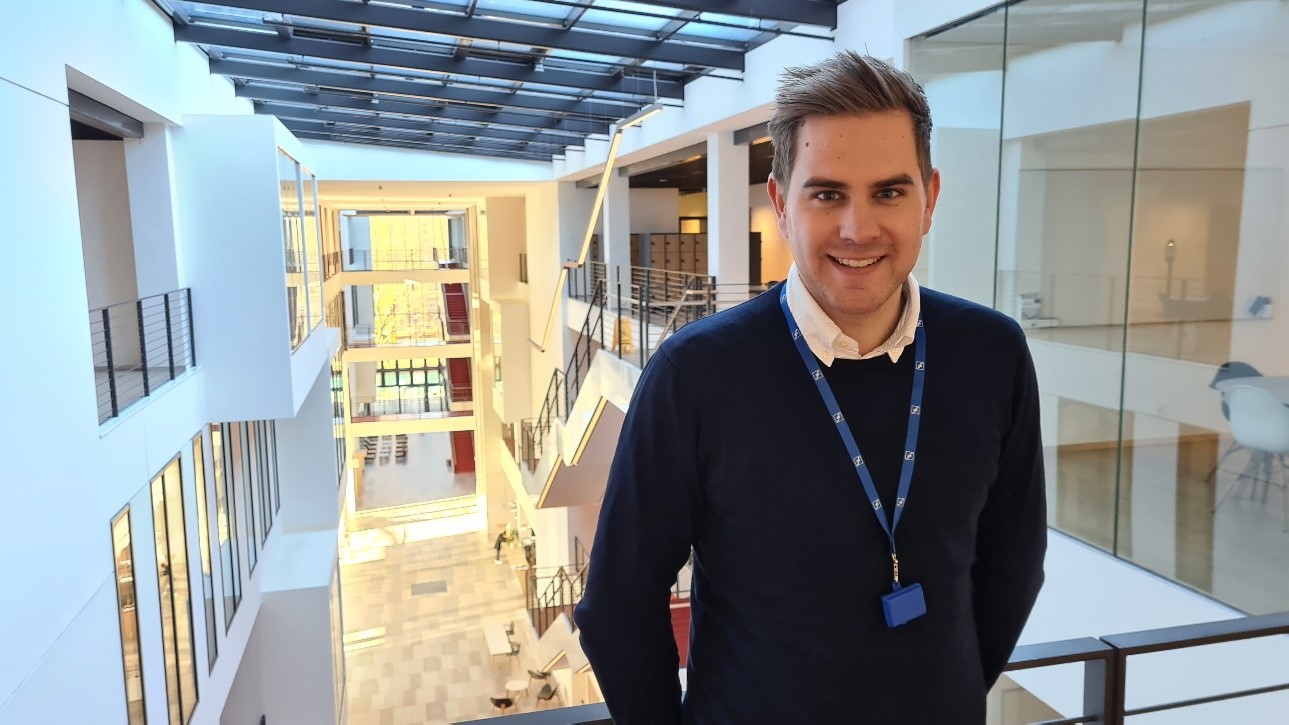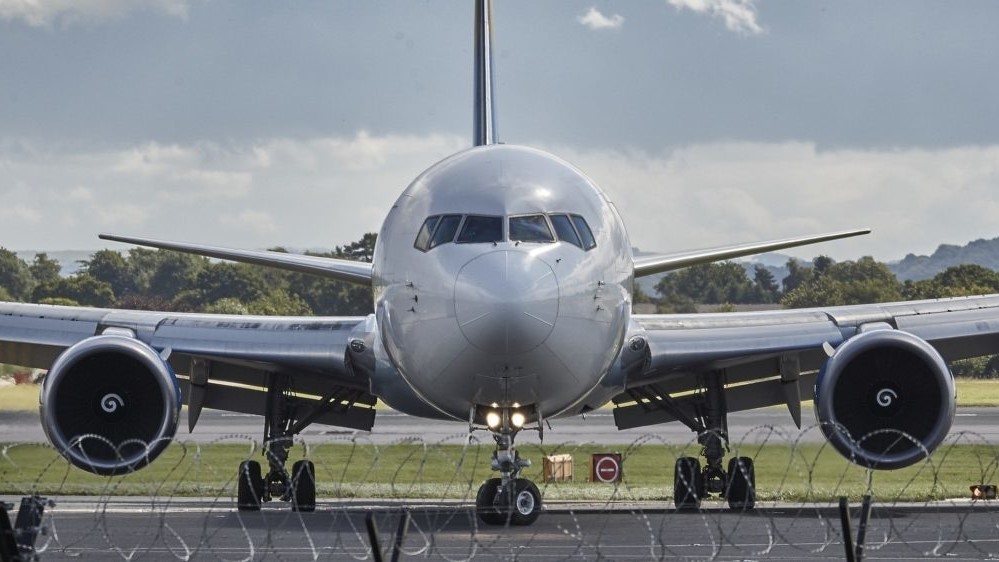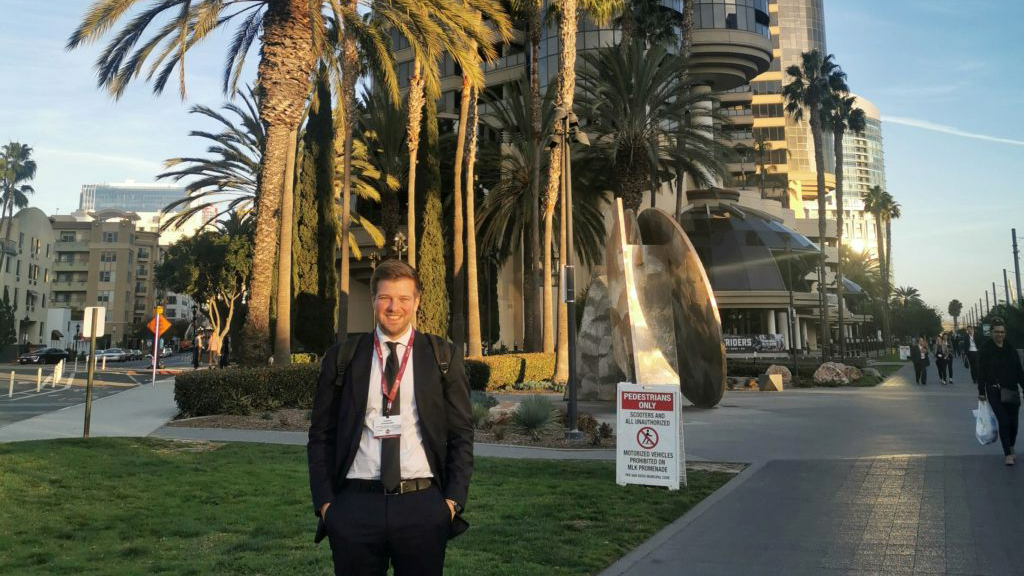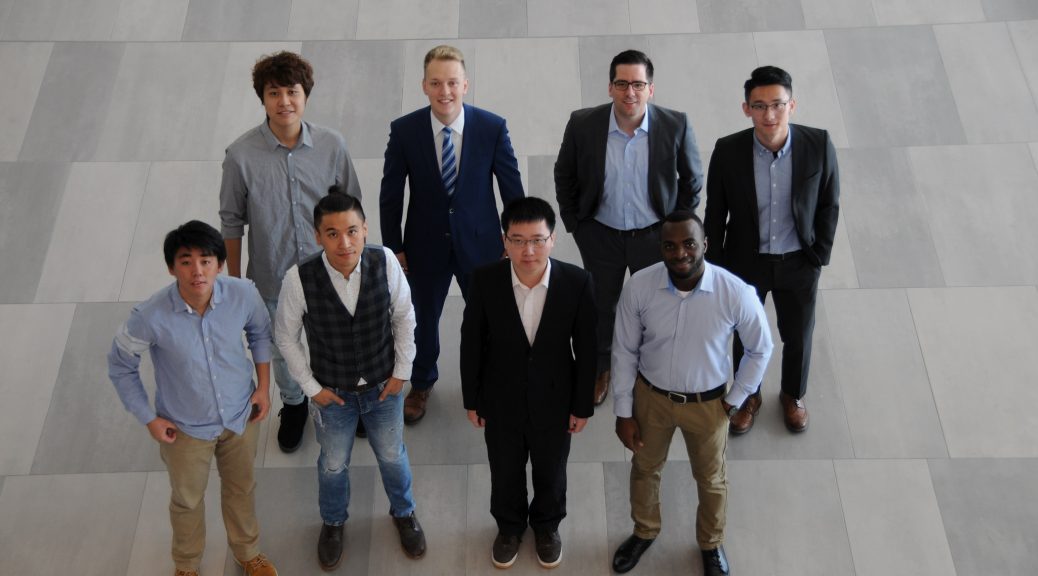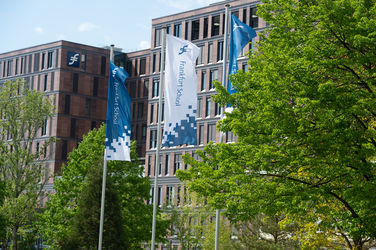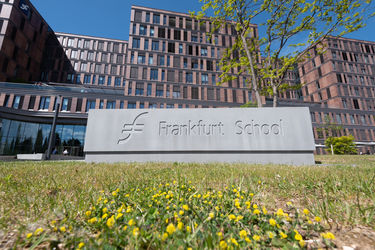"jcr:94dd318c-9605-4914-8fd3-af6c016ad069" (String)
Choose your language
Doctoral Programme in Accounting, Economics, Finance & Management
in Accounting, Finance and Management

Programme Overview
Frankfurt School of Finance & Management is one of Europe’s leading business schools with an internationally recognized reputation for relevant and rigorous research. We are determined to attract the most talented doctoral students in Accounting, Economics, Finance and Management, therefore we offer a stimulating academic environment.
Researchers at Frankfurt School work on fundamental problems that challenge firms and society. How should firms respond to climate change? Can markets be redesigned to support fair outcomes? Does working from home improve gender equality? The five-year Doctoral Programme equips students to contribute to these debates.
The first two years consist of three types of courses obligatory for all students: core courses, concentration courses, and elective courses. In the core courses students focus on analytical skills, learning and applying a broad spectrum of research methods. In the concentration courses students focus on their chosen area of academic specialization in Accounting, Economics, Finance, or Management, which provides the foundation from which to develop research topics. The elective courses enable students to deepen their knowledge in their respective research areas and these courses can be taken at universities around the world. Overview of the study path is available on the page “Curriculum”.
The first 2 years of study can also count towards the Master of Business Research and Analytics M.Sc. (MBRA). If student wants to obtain this master degree they have to write a Master Thesis at the end of the 2 year course period. Students who already have a master degree and are admitted to the doctoral studies at Frankfurt School can choose to complete the MBRA, but are not obliged to do so.
Completing this degree is obligatory for students who do not have a master degree yet, but aim to complete their doctoral studies at Frankfurt School. This master degree also figures as a standalone course of study, in case students do not want to continue with their doctoral degree.
However, every student is obliged to complete the entire coursework of the first two years of postgraduate studies at Frankfurt School.
The coursework phase ends when students successfully pass their Qualifying Exam and graduate to continue to the dissertation stage. In the dissertation stage (years 3-5), students move to active research and write their doctoral dissertation.
While our primary intention is to provide graduates with an ideal platform to enter the world of academia, their research topics are also directly relevant for business and politics. We train our students to develop solutions to complex problems and to develop the social and conceptual skills they need to advise others. Our faculty mentors and supports students in their research. This nurturing intellectual climate is combined with an exciting state-of-the-art campus environment.
Frankfurt School confers the degree Dr. rer. pol., which is the German equivalent of a PhD in Economics. Frankfurt School offers fully-funded study places and a generous monthly stipend for up to five years of study.
Curriculum
In the first two years, doctoral students attend core courses, elective courses, and concentration courses in their respective academic specialisations. In this phase, they obtain the knowledge and skills to research.
The four specialisations, Accounting, Economics, Finance & Management, follow a similar structure.
We asked Dr. Timo Vogelsang, Assistant Professor of Management Accounting, why it is important to invest in coursework at the beginning of your research career. Here is what he had to say:

“The courses are an important basis for excellence while doing your dissertation research. Moreover, during your academic career, you will probably never have so much time available to learn new things. My supervisor always told me this. Now I sometimes regret that I did not spend much more time during the course-phase to learn more about the most current empirical methods and theoretical approaches.“
Doctoral student life at FS
We asked some of our current doctoral students to describe a typical day in their lives at the Frankfurt School. Here is what they said:

"On a typical day, I get up at 7:30 am. I check my emails, do in-door sports, and have breakfast. I leave home around 9:15 am and learn German on the underground. At school, I continue working where I stopped yesterday. As a third-year student I have finished my coursework, so I fully focus on my research. My favourite part of the day is the lunch break when I meet my school mates. Today in the afternoon, I attended the regular reading group lead by Professor Falko Fecht on the topic of banking and financial intermediations."
More Less
My favourite part of the day is the lunch break when I meet my schoolmates. Today in the afternoon, I attended the regular reading group lead by Prof. Dr. Falko Fecht on the topic of banking and financial intermediations."

“Once a week, we usually have a research seminar day, where a scholar from another university presents their research. Sometimes these scholars are legends in your field, whose work is quoted everywhere and it is always interesting to see the rigour with which their work is still interrogated. My favourite thing about this day though, is you get a chance to spend some time speaking with them and you realize they are pretty cool people, trying to do the best research they can, just like you. ”
More Less
My favourite thing about this day though, is that you get a chance to spend some time speaking with them and you realise they are pretty cool people, trying to do the best research they can, just like you.”

“On a usual day, I am arriving at my desk between 8 and 9 am after having exercised in the morning. Then, I am getting my first coffee in the Faculty Lounge, which is also an excellent place to meet fellow PhD-students or faculty. After that, I am settling down at my desk and start working. As I am mostly working on theoretical projects, a lot of my work consists of solving mathematical problems. Hence, I am either programming potential solution algorithms or I am working with pen and paper. Here, the atmosphere at the Frankfurt School allows me to work in a highly concentrated manner."
More Less
At around twelve, most doctoral students are having lunch together. So, that’s perfect timing to chat about current news, research updates, or general things. Often, we are also having a seminar at lunchtime, where a top researcher presents his or her current project. These seminars are mostly highly interactive and a good way to get to know professors from other institutions as well. Due to Corona, a lot of seminars also shifted to online, such that there is a virtual presentation at some conference or seminar series almost every day. After lunch, I am typically trying to read a paper to catch-up with the current state of research. Thereby, I am trying not to focus too much on a single field but really to get a broader understanding of the economics and finance literature. Thereafter, I am often having a meeting with my supervisor or some other faculty member in the afternoon. There, we discuss my progress and these meetings are a great opportunity to ask open questions that help me to progress faster. After having had some more coffees throughout the day, I am leaving the Frankfurt School in the evening. After dinner at home, I am mostly reading books that are not connected to my research. Sometimes, this is also the perfect time to answer emails from students that arrived throughout the day.”
Student funding and scholarships
Frankfurt School offers fully-funded study places for the doctoral programme in order to attract and support the brightest minds in academia.
Students are expected to devote 100% of their working time to their doctoral studies at Frankfurt School for up to five years.
Doctoral students benefit from a monthly financial support of up to €2,320 tax-exempt, along with a full tuition waiver.
The stipend will be granted for five years, conditional on continuing to satisfy all academic programme requirements.
Doctoral students will receive up to EUR 2,320 tax-exempt from the first year onwards, for five years.
Furthermore, Frankfurt School covers costs related to research, including conferences and overseas visits.
Publications by doctoral students
Frankfurt School doctoral students contribute to high-quality research and publish in scientific top journals.
|
Journal |
Paper title |
Authors |
|
Accounting, Organizations and Society 2023, 101469 |
||
|
Review of Financial Studies, 2021, 34(3), 1540-1571 |
Emirhan Ilhan |
|
|
Management Science (accepted May 2021, forthcoming) |
||
|
Strategic Management Journal |
John Joseph |
|
|
Management Science |
Fousseni Chabi-Yo |
|
| Management Science | Wenjiao Cao |

Application process
1. Target Group
Outstanding graduates of a Bachelor‘s or Master’s programme in business administration, finance, management, accounting or related fields who aspire to launch an academic career.
Candidates in the final year of a Master’s or Bachelor’s programme are welcome to apply with their most recent academic transcript. Please note that the degree has to be completed by the time of the beginning of the PhD. The expected grade of the applicants may not be less than a “B” grade point average or 75% of the achievable credits. Foreign degrees will be checked regarding their equivalence.
2. Online Application
The first step of our application process is to complete the online application form. You will need to upload the required documents. Please note that you need a certified English or German translation for all documents not originally in German or English. The application platform will be open from 15 September until 15 January
Required Documents
- CV and list of publications (if existent)
- Certified copy of your University Entrance Qualification (Abitur, A-levels or equivalent)
- Certified copy of your University Degree Certificate or equivalent and academic transcript of records
- Official GMAT or GRE results
- Proof of English Language Proficiency Test (TOEFL IBT min. score of 100/IELTS min. score of 7.0)
- Statement of Purpose (up to 2 pages): Why are you interested in your chosen field of study? What are the potential areas of research you might pursue? Have you completed any research projects with faculty? Is the research of any member of the FS faculty of interest to you?
- Optional Statement: If you would like the committee to consider any of the following factors, you can describe their relevance in a separate statement within the application. This can contribute to the diversity of the entering class: background, extracurricular activities, work experience.
-
Two letters of recommendation: To request the letters from your recommenders, you have to register on a separate platform and send your request from there.
Please click on this link to access the platform: http://apply.interfolio.com/79802
Create a profile by clicking on the button “Apply now”.
If you require assistance, go to the “Home” tab and click the “Dossier Quick Start Guide”.
Once you send your request to your potential recommender, they will receive an e-mail together with a link where they can upload their recommendation letter confidentially. Please provide a deadline for your recommendation letter to ensure we receive it on time. Once the recommender has uploaded the letter, we will be notified and will be able to access it.
3. Interview
Successful applicants will be invited to an online interview with faculty members of their chosen concentration.
4. Results
The final decision regarding admission to our doctoral programme will be made by the Committee for Doctoral Proceedings. It is based on the applicant's overall portfolio and the interview.
If you wonder what qualities the selection committee is looking for in applicants, here is some advice:

Prof. Dr. Markus Fitza, Professor of Management
states: “We are looking for outstanding conceptual and analytical skills. A genuine interest in research and a career in academia is a must.”

Prof. Dr. Francesco Sangiorgi, Professor of Finance
similarly highlights analytical skills for the Finance programme: “We encourage applications from candidates with strong analytical and quantitative skills.”

Prof. Dr. Yuping Jia, Professor of Accounting
emphasizes that applicants do not need to be experts in accounting regulation, indeed she argues that “Accounting is interested in original thinkers, who are creative and have broad interests. People with diverse backgrounds, but with genuine curiosity will find that accounting research has a lot to offer.”

